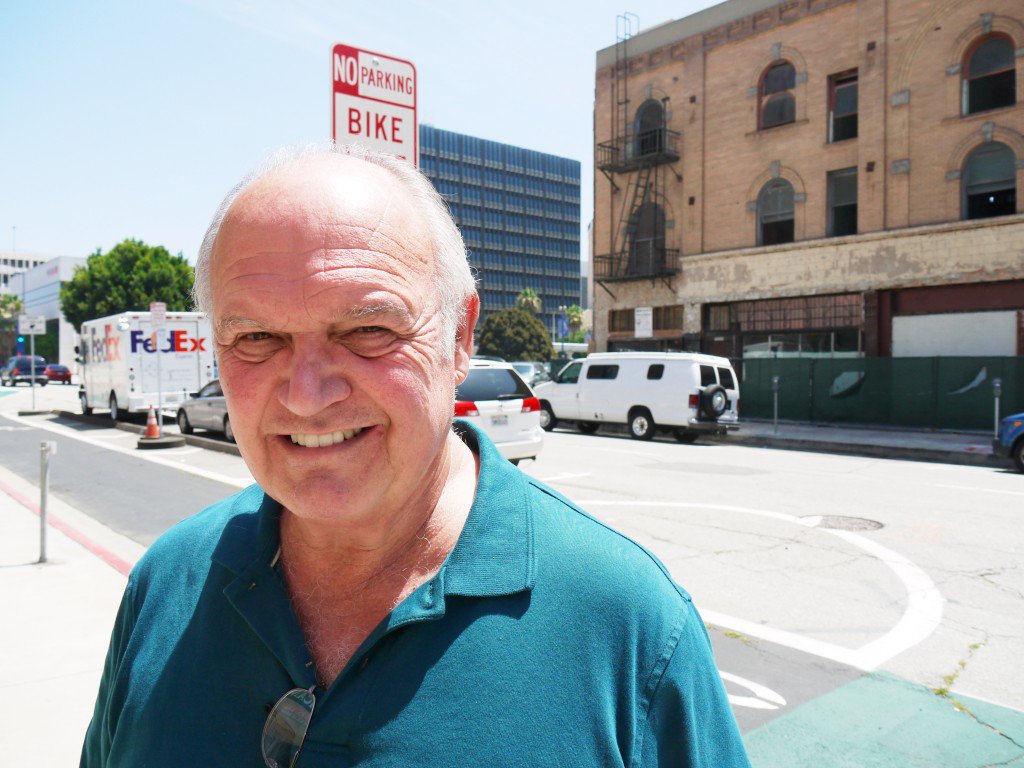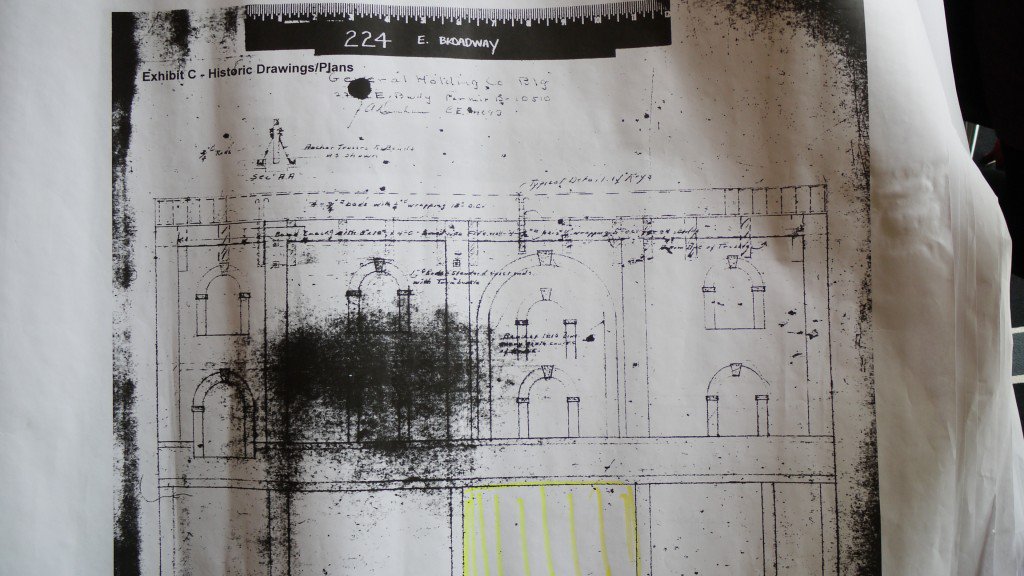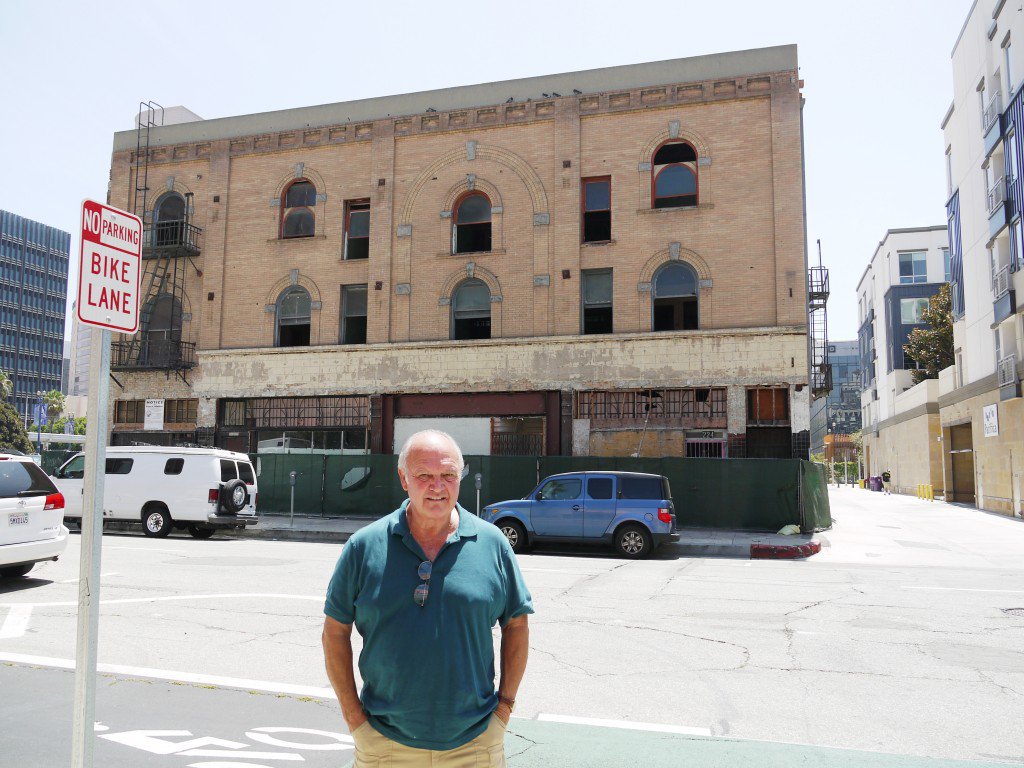Long Beach historian Stan Poe on the Psychic Temple – Pt. 1 (History)
After I pick up Southern California historian, educator, and resident Stan Poe from his Long Beach home, he seems to have a story for every old building that we pass on the drive between the historic Naples area (which is actually patterned after Venice, down to the canals) and our decidedly grittier Downtown destination. But the site of the old American Hotel still turns out to provide one of the city’s most colorful stories. We walk around the boarded-up structure so Poe can point out details of architectural interest (viewable here) and then sit down at the café across the street so he can tell me about its past.
With old newspaper articles, some personal notes, and a photocopied graduate school essay at one hand and a Diet Coke at the other, the member and veteran of numerous preservation committees reels off names, dates, and events that I can only hope to make sense of.
The American Hotel originally was built in 1905, with the intention of being a “Psychic Temple” for the Society of New or Practical Psychology by its founder Dr. William C. Price. The mesmerist, hypnotist, and self-described psychologist was born in Tennessee in 1863 and became a lecturer and demonstrator who traveled all over the South. His five kids were born in five different states. Poe adds, “I don’t know if he was run out of each town or if he left on his own.”
To escape legal problems in Atlanta, Price came out west. He made a stop in San Francisco and gave a series of lectures and classes in Los Angeles before creating the headquarters for what was sometimes called the Holy Kiss Society. In a newspaper article, follower Rosella Bates explained, “Dr. Price says he can take a woman in his arms with the purest thoughts and can kiss a girl without a thought of evil—so strong is his self control.”
Price also practiced a sort of acupressure in which he healed people by strategically touching certain nerves, and preached male continence as a form of contraception and a spiritual practice. Noting that another one of his favorite subjects was derived from a series of 1852 lectures on “Electrical Psychology,” linking electricity to the virgin birth among other things. Poe offers, “I wonder if there was something in those corner rooms that involved electricity? It would be the same time that Tesla was working…”
Price showed interest in many things but charity wasn’t one of them. To rent a nice house in the neighborhood cost about $20 a month. He charged $10 for a lesson. And ultimately it was business and not religion that led to Price’s downfall. He advised followers to mortgage their homes to invest in his efforts. His students were free to invest freely; others had to pay $10 for a lecture beforehand. But in 1908, he filed suit against investors for unpaid stock payments. In turn, stockholders claimed that they were under the spell of his hypnotism and telepathic influence.
The sides deadlocked, and the building was ultimately sold to Price’s legal opponents to pay off a settlement. Dr. Price’s name was removed from the plate glass with acid and taken off the cornerstone with a chisel. Anna Sewell purchased the building in 1911 for $2,910.09, renaming it as American Hotel and beginning its short descent into being a longtime flophouse with modest businesses on the ground floor and eventually vacant husk of a building in the center of Downtown Long Beach.
As for Price, Poe says, in 1919 he left Long Beach for Los Angeles, where he started the New School for Applied Christian Psychology. Things continued to unravel for him in 1923, when Price was arrested for fraud and divorced for adultery. He died in 1925.



